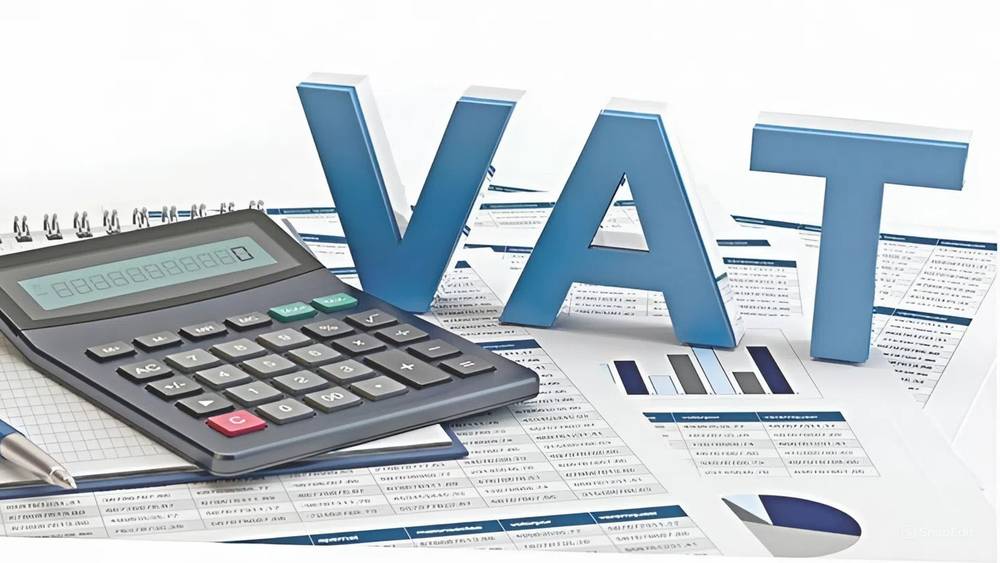Value Added Tax
Value Added Tax (VAT) is a cornerstone of the Egyptian tax system and a vital element for businesses, professionals, and consumers alike. Whether you're launching a startup, offering digital services, or expanding your business, understanding VAT is essential for tax compliance, financial planning, and business growth.
![]() Tamer mohamednosair - • Tax services and everything related to taxes
Tamer mohamednosair - • Tax services and everything related to taxes

Everything You Need to Know About Value Added Tax (VAT) Services in Egypt
Introduction
Value Added Tax (VAT) is a cornerstone of Egypt’s tax system and a critical factor for businesses, professionals, and consumers alike. Whether you’re launching a startup, offering digital services, or expanding your commercial activities, understanding VAT services is essential for compliance, financial planning, and business growth. This guide provides a comprehensive, up-to-date overview of VAT services in Egypt—explained in practical, marketing-friendly language to help you stay ahead in the evolving tax landscape.
What Is Value Added Tax (VAT) and Why Does It Matter?
VAT is an indirect tax applied to most goods and services at each stage of production and distribution. In Egypt, the standard VAT rate is 14%, making it a significant element in pricing, business operations, and government revenue. The tax is calculated on the “value added” at every step, ensuring transparency and fairness across the supply chain.
Key Benefits of VAT in Egypt:
- Major source of state revenue supporting infrastructure and public services
- Promotes tax fairness by applying a uniform rate to most goods and services.
- Enhances business transparency and limits tax evasion through digital invoicing and reporting systems
- Supports digital transformation and eases compliance via online tax portals.
Who Must Register
for VAT?
Any individual or legal entity engaged in commercial, industrial, or service activities with annual sales exceeding EGP 500,000 must register for VAT. Importers are required to register regardless of turnover.Registration is mandatory once this threshold is crossed, and non-compliance can result in significant penalties.
Which Services Are Subject to VAT?
* VAT in Egypt covers a wide range of services, including but not limited to:
Professional and legal consulting
* Advertising and marketing
* Hospitality and hotel services
* Transportation and shipping
* Maintenance and repair
* Insurance (with some exceptions)
* Contracting and construction
* Digital and remote services (including online content, software, and consultancy)
Recent updateshave expanded the VAT base to include more digital and remote services, especially those provided by non-residents to Egyptian consumers. Non-resident vendors must now register, collect, and remit VAT for services delivered to Egypt, with simplified registration procedures in place.
Exemptions and Special Cases
While most goods and services are subject to VAT, Egyptian law exempts certain essential sectors:
* Basic food products and subsidized bread
* Essential medicines and some healthcare services
* Educational services
*Certain government and non-profit activities
Some sectors, like construction and advertising, have recently shifted to the standard VAT rate, allowing for full deduction of input VAT and supporting sector formalization.
How Is VAT Calculated and Paid?
VAT Calculation Steps:
1- Calculate Output VAT: VAT collected from customers on sales/services
2- Calculate Input VAT:VAT paid to suppliers on purchases/services.
3- Net VAT Due:Output VAT minus Input VAT. If input exceeds output, the surplus can be carried forward or refunded in specific cases (e.g., exports).
Payment & Filing:
* VAT returns and payments are made electronically via the Egyptian Tax Authority portal.
*Returns must be filed even if no sales occurred during the period.
* Late filing or payment can result in penalties and interest.
Latest Amendments and Incentives (2025)
- No increase in the standard VAT rate for 2025; essential goods and services remain exempt.
- Expanded VAT base:More services, especially in digital and construction sectors, are now included.
- New incentives for small businesses: Simplified compliance, reduced rates, and quarterly VAT returns for enterprises with annual turnover up to EGP 20 million, supporting entrepreneurship and voluntary registration
Voluntary registration grace period:
:Unregistered businesses can regularize
their status without retroactive penalties if they register within the
designated period
Practical and Marketing Tips for Businessesto streamline VAT calculations and audits.
* Keep accurate, electronic financial records
* Consult a VAT expertto ensure correct application and benefit from available incentives.
* Stay updated:Follow official Egyptian Tax Authority announcements for the latest VAT changes and deadlines.
Conclusion
CopyVAT services in Egypt are evolving rapidly, reflecting global best practices and supporting a more dynamic, transparent business environment. Staying compliant not only avoids penalties but also builds trust with clients and partners, enhances your brand reputation, and opens doors to government incentives. Whether you’re a local entrepreneur or an international service provider, mastering VAT is a smart move for sustainable growth in Egypt’s competitive market.
This article is based on the latest laws and guidelines from the Egyptian Tax Authority, Ministry of Finance, and leading tax advisory sources to ensure accuracy, reliability, and actionable insights for your business needs.